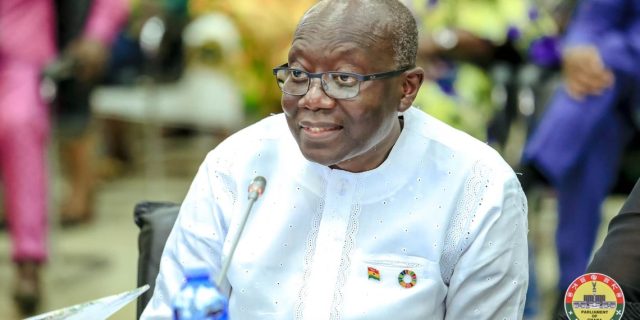With barely 24 hours to the end of the deadline for the Domestic Debt Exchange Program, the government seems to have made significant progress in building consensus for the policy.
The DDEP was initially met with stiff opposition when it was first introduced but it appears the dust is gradually settling on the issues.
The government had on the 5th of December launched the Domestic Debt Exchange program which sort to give the government’s debtors an invitation for the voluntary exchange of approximately GHS137 billion of the domestic notes and bonds of the Republic, including E.S.L.A. and Daakye bonds, for a New set of Bonds.
Existing domestic bonds as of 1st December 2022 are to be exchanged for a set of four new bonds maturing in 2027, 2029, 2032 and 2037.
The annual coupon on all of the new bonds will be set at 0% in 2023, 5% in 2024 and 10% from 2025 until maturity.
The program was designed to help Ghana restructure its debt and was part of efforts towards securing a $3 billion loan from the International Monetary Fund.
But it has been met with major resistance since its inception. Labour unions threatened legal and industrial action if their pension funds were included in the program.
The Ghana Association of Banks instructed its members not to sign onto the amended debt exchange offer until its members’ demands are met. This is due to the uncertainty regarding the impact of the debt restructuring on the banking industry.
The Individual Bond Holders Forum has also been loud with calls for its members to be exempted from the program as its impact would be dire on their livelihoods.
All these have been stumbling blocks in the government’s attempt to get an agreement on the DDEP compelling it to extend the deadline on three consecutive occasions; a situation industry players have lamented is heightening the level of uncertainties on the market.
Stakeholders repeatedly called for more engagement on the program to get a buy in of the public.
It appears the government might have listened. Organised Labour prevailed in its attempts to prevent the government from including pension funds from the debt restructuring.
After series of meetings with various sector players it was able to secure an agreement with the Ghana Association of Banks which concluded with an agreement to pay 5% coupon for 2023 and a single coupon rate for each of the twelve (12) new bonds resulting in an effective coupon rate of 9%.
Also for clarity on the operational framework and terms of access to the Ghana Financial Stability Fund (GFSF) and the removal or amendment of all clauses in the Exchange Memorandum that empowers the Republic to, at its sole discretion, vary the terms of the Exchange.
The Ghana Insurers Association also secured a similar deal with their banking sector counterparts.
And, the Convener of the Individual Bond Holders Association of Ghana (IBHAG), Martin Kpebu, also was optmistc after the Finance Minister has assured that individual bondholders are exempted from the domestic debt exchange programme.








![Stonebwoy holds star-studded party for ‘5th Dimension’ mega album [Video]](https://ghananewss.com/storage/2023/04/stonebwoy-partyy-100x75.jpeg)








